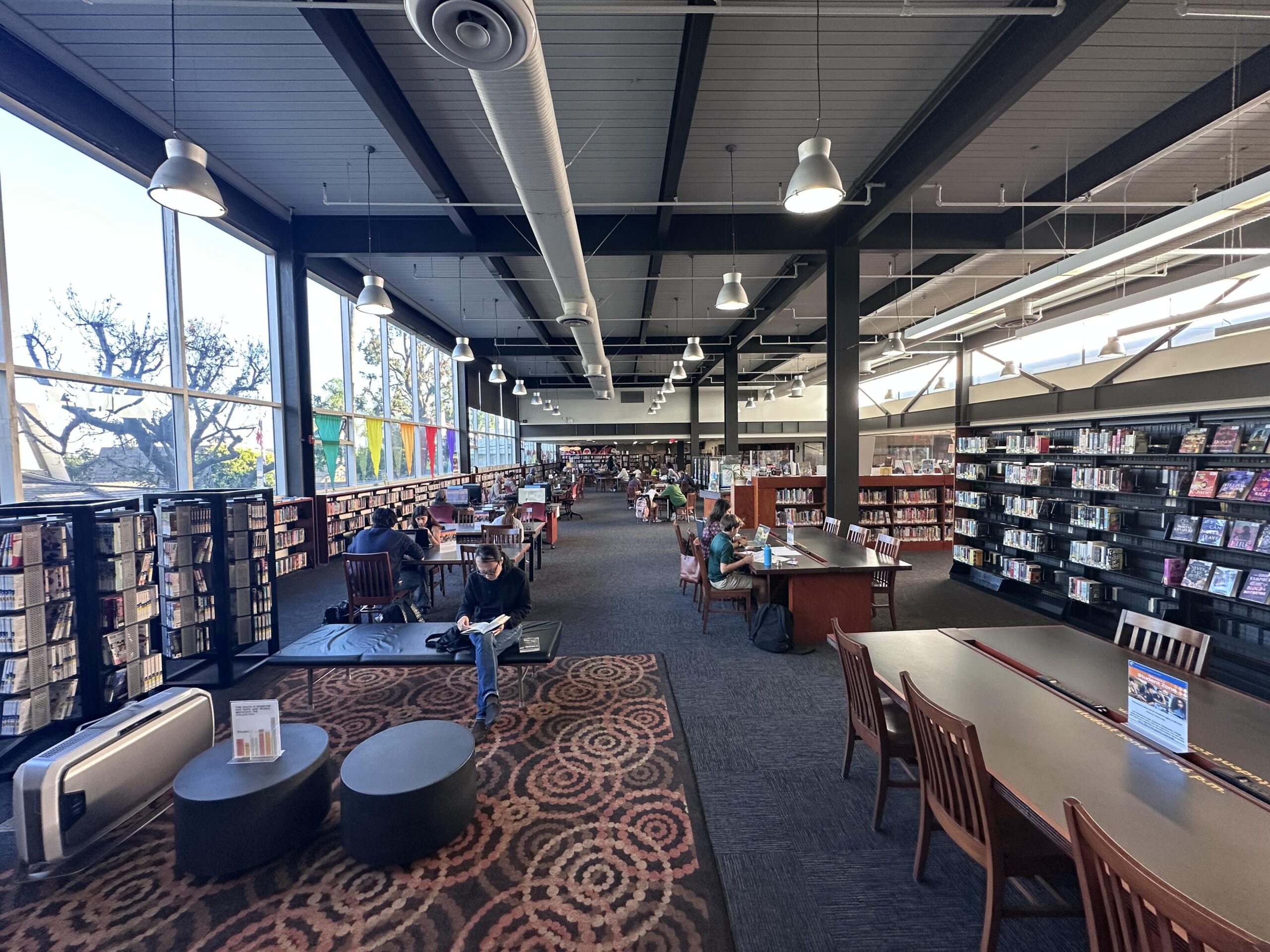(HACKETTSTOWN, New Jersey) — Thousands enrolled online to learn how British royalty influenced fashion over the last 500 years. Despite nowhere to travel to, tens of millions tried to learn a new language. Others shelled out $79 to understand more about depression. And nearly 100,000 people signed up to learn how to teach online.
As the pandemic ignited a global lockdown, millions turned to online apps and platforms to learn anything from a new language to how to bake bread. The migration marked a catastrophic shift in learning. But as vaccines roll out across the globe, “normalcy” is beginning to feel possible again. To keep up the momentum, edtech companies are banking on tailored learning experiences geared towards people whose job or education was impacted by the COVID-19 pandemic, even as the world strives to leave the pandemic in the past.
“This period, in my view, has philosophically driven people to examine their existence,” said Dr. Sanjay Sarma, Vice President for Open Learning at MIT and author of Grasp: The Science Transforming How We Learn. “Human introspection has really kicked in.”
Record breaking numbers
Duolingo, an online and app-based language learning platform that boasts more than 500 million total users, said 30 million people signed up between March 11 and April 30, 2020, as lockdown restrictions ramped up—a 67 percent increase from that same period in 2019.
“We knew we were going to be very physically isolated, but it was a time of feeling so connected to people all over the world that we were going through this thing together,” Dr. Cindy Blanco, a Senior Learning Scientist at Duolingo, told The Click. “I think language learning on Duolingo became a way to keep occupied in a positive way, to stay connected when everything else changed.”
A new language wasn’t the only skill people sought out. FutureLearn, an online education startup that’s offered more than 3,000 courses since its founding in 2013, saw enrollments “increase approximately four times from pre-COVID levels,” according to a company spokesperson via email with The Click.
Students on the platform can enroll in courses for free for a limited time, upgrade for a fee for unlimited access to a course or pay a subscription to unlock access to every course offered. FutureLearn declined to share revenue figures.
“The classroom lecture is like you watching a freight train go by in your station. It comes when it wants to come and goes by when it wants to go,” said Dr. Sarma. “Online has all these amazing modalities, the most important of which is pause.”
Meeting the new normal
In the U.S., President Joe Biden vowed that there would be enough vaccines for every adult by the end of May. So far, the vaccination rate is showing signs that “normalcy” may be possible. Nearly 40 percent of the US population has received at least one dose of the COVID-19 vaccine at the time of this publishing, according to the Centers for Disease Control.
The dissolve of pandemic-driven boredom and free time could threaten to slow the growth edtech companies have been experiencing during the pandemic. With less free time for personal development, education startups will have to find new ways to attract users—a potentially tough endeavor as the industry becomes crowded with competition from other startups such as Masterclass, Outlier, and Udemy.
“We only saw that that spike was unique to a world in panic over a pandemic, but the growth has continued since then,” Dr. Blanco said, adding that Duolingo now has 40 million monthly users—up 10 million from its pre-pandemic levels. “They might have joined for different reasons, but now they’re behaving just like people who joined pre-pandemic.”
For Duolingo, keeping up that growth is essential to its core business. After all, its revenue is derived from premium subscriptions to the app and ads that play during lessons. Unsurprisingly then, Duolingo is looking to engage with students in different ways through Duolingo ABC, an app that helps children learn to read, and Duolingo’s own English proficiency tests. The company declined to share how much revenue it earned in 2020, but Luis von Ahn, CEO of Duolingo, told TechCrunch last September that the company was “more than breaking even.”
Duolingo ABC’s rollout was expedited at the beginning of the pandemic to offer literary skills up to a first grade level. Dr. Blanco said the expedited rollout was a direct response to what Duolingo feared was students falling behind with their education outside of a traditional classroom.
The company’s English proficiency test likewise saw newfound importance as colleges shifted online. The number of students taking Duolingo’s proficiency exam increased by 2,000 percent during the pandemic with roughly 3,000 institutions accepting results, according to the company.
While Duolingo expects the appeal of learning a new language to resume in the future as travel restrictions loosen, it’s hoping the influence of international cultures will continue to permeate throughout the platform’s user base.
“The travel motivation will return for us and people will be studying [languages] for that more specific reason,” Dr. Blanco said. “The other thing that I think will happen is that people have realized how much that language can connect us,” as she points to the rise of K-Pop bands like BTS and the fast-growing popularity of anime content.
For FutureLearn, the company insists that “normalcy” won’t necessarily mean a mass exodus from the learning trends developed during the pandemic. “‘Normalcy’ is lifelong learning now,” a spokesperson said.
Recognizing how detrimental COVID-19 was to the global job market, FutureLearn partnered with The Big Issue and City & Guilds, two UK-based organizations that promote job skills and employment. The partnerships, launched this year, give discounted access or—in the case of City & Guilds—specialized courses to workers impacted by the pandemic whether that be unemployment or career changes.
“People are trying to upscale because their jobs are changing,” Dr. Sarma said, noting that he too took time at the beginning of the pandemic to learn about best practices for video conferencing.
A new, lower plateau
While online learning platforms designed for personal development may not see the spike they enjoyed at the beginning of the pandemic for quite some time, what’s clear is that online learning, in some capacity, is here to stay.
“We’re all going to strive for ‘normalcy,’ and we’ll struggle for it,” Dr. Sarma said. “But I do think we’ll settle on a new plateau. It’s not going to be the plateau we’re on right now. It’ll be a lower plateau, but I think that a lot of these things will stick.”

